On a light note, in early 2017 my wife Ellen and I unavoidably overheard a passing conversation after we had run an errand and then meandered to lunch at an outdoor table at Karsen’s Grill in Old Town Scottsdale. A man I’d guess to be in his early fifties was coming along the sidewalk toward us as he talked to someone on his hands-free smartphone.

Image credit: Source
Just as he passed our table he said to the person on the other end, “She’s dating four guys now and she doesn’t like any of them.” Then his voice faded as he continued walking.
His comment got me to thinking out loud with Ellen. Was he talking about his daughter? Or his sister? Or a neighbor? Without knowing, he was most likely talking about his daughter because there was a tone of fatherly concern in his voice. As a father, that’s my guess.
Then I wondered about whomever he was referring to:
- How could she date four guys at the same time and not like them, at least enough to go out with them?
- Was it possible that she liked the four of them roughly equally, with one’s weaknesses being balanced out by the strengths of the other three?
- Did each of the four guys know she was also dating the other three?
- Does it take four guys to satisfy her needs?
Of course, I’ll never know the answers to these questions. But I’m likely to continue to ponder them for a while.
~ ~ ~
Sometime later I posted the above story on my Facebook page, with this note to my friends, “If any of you have likely explanations for this puzzle, please sound off in comments!” Three of the comments included alternative ways of viewing the overheard conversation:
Jean Theresa said, “She might consider them to be just friends and her father (if that’s who he was) thinks she’s dating them. Or maybe she has just had a date or two with each . . . good not to put her eggs all in one basket, but four baskets could make for a complicated ride.”
Eileen Gentile wrote, “Maybe he was talking about someone he is dating and was trying to wrap his brain around her dating three other guys at the same time. This is all foreign to me since I started dating Jim when I was 16, dated only him for two years, and have been married for fifty-five years.”
Then Cory MacDonald really got into this with an extensive quote:
“And to complicate it further, terminology has changed. From the way my 25-year-old son explained it to me, there’s “dating,” “seeing each other,” and “going out.” “Dating” is the most casual of the three, really more like friendship with the potential of a make-out session here and there. “Seeing each other” is a little more exclusive to one person, but it’s understood by both parties that it’s still not a truly committed relationship. “Going out” is a one-to-one committed relationship. So, when you hear “dating” in reference to today’s terminology, it’s a casual thing. I think one of the younger people needs to do up a chart for us to follow.”
So there you have it. If you are as out of it as I am on modern dating lingo, we are duly updated! I wonder if the guy whose phone conversation Ellen and I overheard as he walked by our table is still in the dark on all this. Probably.
You never know what you may inadvertently hear when you’re out in public. But once you do and it burrows into your mind, you can’t unhear it. That’s what lawyers and judges worry about when a witness blurts out an inappropriate remark in the presence of a jury—such as, “She’s dating four guys at the same time and she told me she doesn’t like any of them!” The judge then orders it stricken from the record. But the jury has already heard it, and they can’t unhear it.
Of the thousands of things we inadvertently hear people say, few of them leave any impression at all. But this overheard snippet over that January lunch at a sidewalk café became extra food for thought after it entered my brain and percolated there. A perfect example of a meandering and a mulling.
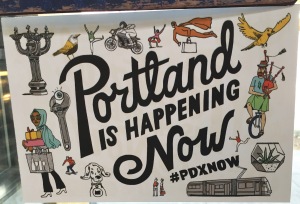

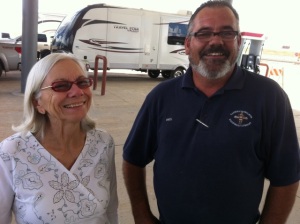
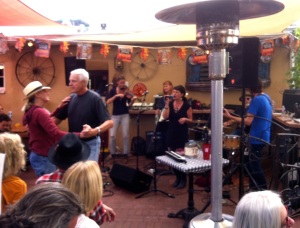
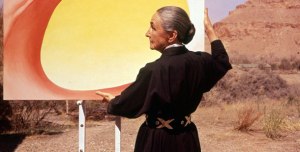
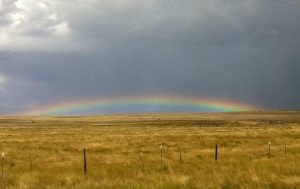

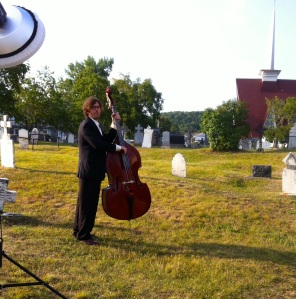

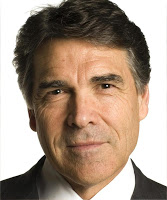


Book 2, Meanderings and Mullings, and Why You Might Care
This post may go down as the weirdest author announcement of a new book ever! Related to that, why, you may ask, did I post this announcement over a month after its publication?
What is not so weird is that my new book, Meanderings and Mullings, is made up almost entirely of some 140 previous short blog posts that I wrote from 2011 to 2017. Those writings span a wide range of topics that are part memoir, part essays, part humor, part travelogue, and part opinion. The stories come now with numerous updates—plus a complete reorganization to provide needed structure.
Meanderings and Mullings pictured over Cold Turkey at Nine: The Memoir of a Problem Child (2013).
Over a year before the release of Meanderings and Mullings, I told friends my goal was to have it out by October 2017. Amazon’s website says the publication date of hardcover and paperback versions was October 30, 2017, and they show the availability of the Kindle version a month later. That’s why I waited a month to announce the book was out, which is also available through local book retailers, Barnes & Noble, Apple Books, Kobo, and other major e-book sources.
You ask, Why are you telling me all this? Well, those of you who are planning, writing, or in the middle of publishing your own books may have a better idea of what to expect when publication time comes. This post may help with that process.
Here’s what Kirkus Reviews says about Meanderings and Mullings:
“Russell returns to his childhood on a Tennessee farm, but this time he fondly recollects activities ranging from mule skinning and tobacco harvesting to corncob fights . . . The author also exhibits an engaging sense of the absurd. Russell’s affable nature and evident wonderment at the world around him ultimately win the day.”
Finally, here’s more reader info from the book’s official overview:
Meanderings and Musings is a collection of true stories, short essays, humor, travelogues, and ruminations that entertain, inspire, and stir thought. Russell has a voice that is easy to hear as he takes you back to his animated childhood in the rural South. As he moves through adulthood, there are intriguing takes on academe where he spent his career, poignant observations, and delightful surprises. An intrepid traveler, Russell describes his trips in unusual ways and with characters who come to life. His deliberations engage and challenge. This book is worth taking time to read, savor, and revisit. How could you ask for more?
Russell’s first book, Cold Turkey at Nine: The Memoir of a Problem Child, tells of a life forever changed by his paranoid schizophrenic mother’s death at his father’s hands. In that book and in this one, which Kirkus Reviews notes “is made of more cheerful stuff,” Russell writes with unusual empathy for the struggles of others he comes to know. With curiosity, humor, and insight in this his second book of nonfiction, you will come to know an earlier America now unknown to most, and a world that gets smaller and more precious as we experience it.
May I ask a small favor of you? If you read Meanderings and Mullings, I’d really appreciate it if you would be willing to write a brief review of it on Amazon. That’s where most book reviews get posted and it’s one way you can help expose more readers to Meanderings and Mullings.
I will update this post from time to time, as needed. Thanks for your interest, as evidenced by your reading this far! 🙂
Share this:
Advertising, Arizona, Austin Texas, Author, Baby Boomers, Behavior, Beliefs, Biography, Books, Brain, Children, Christmas, Climate, Continuing Education, Creative Nonfiction, Death, Death with Dignity, Eating out, Education, Embarrassment, Essays, Family, Farming, Fashion, Food, France, Future, Government, Heaven, Hell, Higher Education, Holidays, Hospitality, Humor, LAMP, League of Women Voters, Life, Love, Male pattern baldness, Mathmatics, Medicine, memoirs, Music, Musings, Mystery, Narrative Nonfiction, Nature, NBC News, New Mexico, New York City, New Zealand, News, Normandy, Osher Lifelong Learning Institute, Parenthood, Paris, Physicians, policy, Politics, privacy, pulled pork, Reason, Retirement, Right to die, Rural recreation, Scotland, Scottsdale, Arizona, Sports, Stories, Sydney, Tennessee, Texas, Travel, University of Texas, Winter, Words, Work, World War II, Writing
adolescence, Australia, blogging, Chicago, childhood, climate change, commentary, family, farm life, friends, genes, growing up, lessons, meaning, memoir, musings, narrative nonfiction, parenting, role models, self-deprecation, seminal moments, stories, storytelling, teachers, Tennessee, Texas, Thought, tradition, tragedy, travel, writing
November 24, 2017
14 Comments